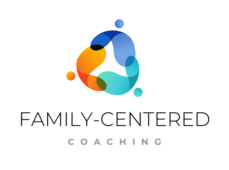Coaches take steps to ensure that they focus solely on holding the participant’s agenda rather than their own. Central to this focus is how coaches view the participant.
Do you view participants as resourceful, or do you think they need your help? Do you believe the participant has the answers to their challenges, or do you view yourself as the expert? If you answered yes to the second part of either of these questions, you may be pushing your own agenda and will have a tough time holding their agenda.
If you view the participant as resourceful but are slipping into old habits of having to be the expert, identify strategies like these to keep a participant’s agenda at the center.
- Periodically check in with yourself to make sure you are letting go of your opinions. Post reminder notes around your work space that remind you that participants are the experts in their own lives.
- Check in with the participant to confirm that coaching is helping them to achieve the result they want to achieve. This, however, does not mean that you should hold back on sharing helpful information or resources that the participant may not know about.
- After you have given the participant an opportunity to access and share what they know, you can ask, “Would you like me to share a resource or idea with you that might be useful?” If they are open to this, then you can share it with them.
- Avoid suggesting or steering them toward a particular solution. Rather, offer useful information that may help them discover a way forward.
- If you pose a question to the participant and they are completely silent or give short “I don’t know” responses, you may be tempted to jump in and help them find the answer. Resist the temptation to help the participant. Let the silence do the work for you.
- Get comfortable with silence. It is often during silence when the participant is coming up with the answer. If the silence lasts too long, ask a follow-up question, such as “What’s the first thing that comes to your mind?” Or invite the participant to continue to reflect and find their own answers.
- If the participant is stuck, consider rephrasing your question. Is your question too complex? Try asking questions that begin with “What” instead of “Why” to see if that makes them easier to respond.
The Prosperity Agenda provides these resources as the designated national administrator of Family-Centered Coaching.

